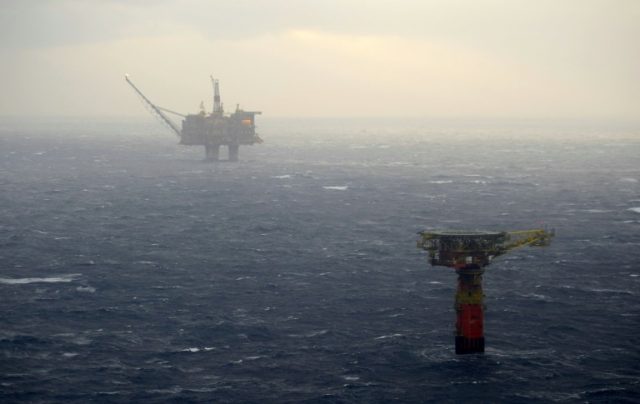China’s Foreign Ministry issued a warning to Russia’s state oil company Rosneft against drilling near disputed South China Sea islands claimed by Beijing on Wednesday. Russia insists the project in question has been conducted entirely within Vietnam’s territorial waters.
Rosneft’s Vietnam unit began drilling two days ago in the “Red Orchid” gas field about 230 miles southeast of Vietnam. The area falls inside China’s “nine-dash line,” a legally vague demarcation that China tends to interpret as a claim of ownership for most of the South China Sea. The Philippines successfully contested China’s claims in international court, but China simply ignored the ruling and has bribed or bullied most other Asian nations into following suit.
On Wednesday, Reuters cited “sources with direct knowledge of the situation” who said Rosneft is worried that Beijing will become “upset” by its Vietnam project. The report did not specify whether these sources were affiliated with Rosneft, China, or Vietnam, or were knowledgeable outside observers.
When Reuters asked the Chinese Foreign Ministry for comment, it responded that “no country, organization, company or individual can, without the permission of the Chinese government, carry out oil and gas exploration or exploitation activities in waters under Chinese jurisdiction.”
“We urge relevant parties to earnestly respect China’s sovereign and jurisdictional rights and not do anything that could impact bilateral relations or this region’s peace and stability,” Foreign Ministry spokesman Lu Kang said at a press conference.
China pressured Vietnam into halting an oil drilling project conducted by Spanish firm Repsol in a nearby area of the South China Sea in March. The cancellation could cost the company up to $200 million in investments, including $41 million spent on exploring the area. The order to suspend the project was issued just days before a drilling platform was scheduled to depart from Singapore for the site.
In July 2017, Vietnam ordered Repsol to suspend another drilling project in the region. That order came after China reportedly threatened military action against Vietnamese outposts.
In a statement on Thursday, Rosneft insisted that its offshore licenses are “situated within the territorial waters of Vietnam.”
“The Company conducts its operations on the shelf of Vietnam in a strict accordance with the license obligations and compliance with the subsoil use legislation of the Republic of Vietnam,” said Rosneft.
Perhaps not coincidentally, a group of Chinese tourists arrived at Vietnam’s Cam Ranh International Airport on Sunday wearing T-shirts that displayed the nine-dash line. Vietnamese police ordered the tourists to remove the shirt and are conducting an investigation to “clarify the motive of the Chinese group.”
Vietnam’s speech codes forbid “spreading false information about Vietnam’s history and culture,” as VN Express puts it, but there is some confusion about whether this law criminalizes public display of the nine-dash line, which asserts Chinese ownership of waters Vietnam regards as its historic territory. These Chinese visitors were evidently the first to put it to the test.
Vietnamese social media users were enraged by images of the T-shirt and demanded the immediate deportation of the tourists. Chinese tourism to Vietnam has increased dramatically in recent years, including a 40 percent surge in just the first four months of 2018.
“We are pretty puzzled about dealing with this,” provincial Vice Chairman Tran Son Hai admitted.

COMMENTS
Please let us know if you're having issues with commenting.